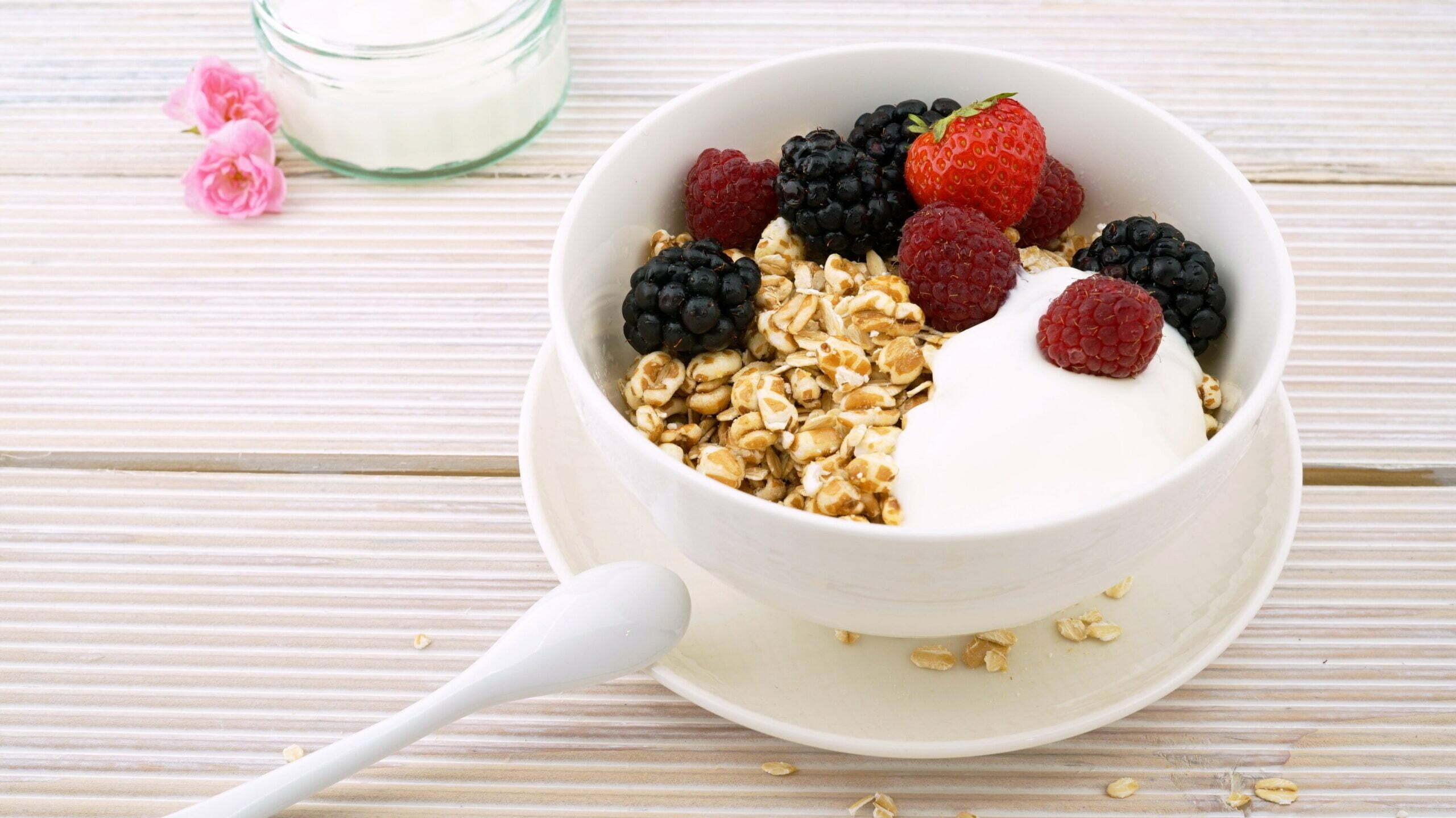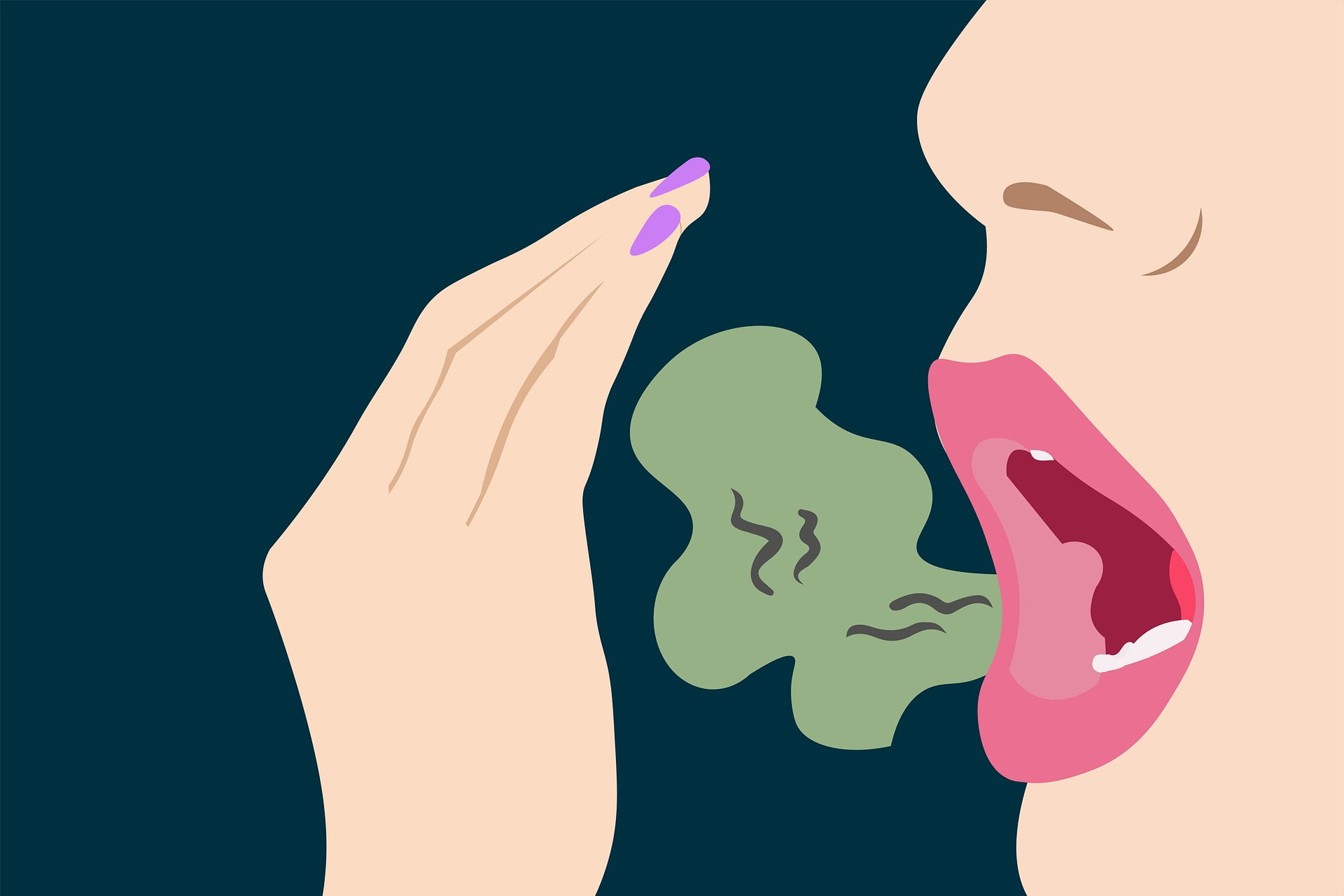Bad breath, often known as halitosis, can be caused by poor oral hygiene and may be an indication of various health issues. Bad breath can also be exacerbated by the foods you consume and other harmful lifestyle practices.
In many cases, you can improve bad breath with consistent proper dental hygiene. If simple self-care techniques don’t solve the problem, see your dentist or physician to be sure a more serious condition isn’t causing your bad breath.
Causes for Bad Breath
- Tobacco products – Smoking produces an unpleasant odor in the mouth. Smokers and users of oral tobacco are also more likely to develop gum disease, which is another cause of foul breath.
- Dry mouth: Saliva cleans the mouth naturally. If the mouth is naturally dry or dry as a result of an illness, such as xerostomia, smells can accumulate. In fact, morning breath is worse for people who sleep with their mouths open.
- Dental hygiene: Brushing and flossing remove microscopic particles of food that might accumulate and slowly degrade, generating odor. If brushing is not done on a regular basis, a coating of germs known as plaque forms. This plaque can irritate the gums and develop periodontitis, or inflammation between the teeth and gums. Dentures that are not cleaned correctly or on a regular basis might house germs that cause halitosis.
- Mouth, nose, and throat conditions: Small, bacteria-covered stones can grow on the tonsils near the back of the throat, causing odor. Infections or inflammation in the nose, throat, or sinuses can also result in halitosis.
Many other diseases and illnesses can cause bad breath, including:
- Seasonal allergies
- Respiratory tract infections such as pneumonia or bronchitis
- Long-term (chronic) sinus infections
- Postnasal drip
- Diabetes
- Chronic acid reflux
- Gastrointestinal issues
- Chronic lung infection
- Liver or kidney problems
Bad Breath Remedies
With some simple changes in lifestyle, DIY remedies, and dental health care routine, you can cure bad breath. Let us explore in-depth some home remedies for the smelly mouth that you can easily try to fight bad breath.
Cinnamon Oil

A 2017 study looked at the effects of cinnamon oil on S. moorei bacteria.
Cinnamon oil had potent antibacterial properties against S. more. It also lowered VCS hydrogen sulfide levels.
The researchers also discovered that cinnamon oil did not harm human gum cells.
They came to the conclusion that adding cinnamon oil to oral hygiene products might help manage halitosis. However, further human-participant studies are required to back up this assertion.
People should not use a cinnamon essential oil on their skin without first diluting it in a carrier oil. Cinnamon oil and essential oil are also available. Essential oils should not be consumed by humans.
Also read 9 Natural Yet Most Effective Gut Health Boosters
Tea Tree Oil Rinse

Certain bacteria in the mouth produce substances known as volatile sulfur compounds (VSCs). These compounds swiftly degrade into the gases that cause foul breath.
According to a 2016 study, tea tree oil may be useful at lower levels of bacteria that create VSCs.
In the laboratory, the researchers isolated bacterial cultures of Porphyromonas gingivalis and Porphyromonas endodontalis for this investigation. They next applied tea tree oil or chlorhexidine to the cultures. Chlorhexidine is a popular antibacterial used in mouthwash.
Tea tree oil’s effects were comparable to those of chlorhexidine. Each inhibited both bacterial strains’ growth and lowered VCS production.
The findings of this laboratory investigation are encouraging. However, further research into the effects of tea tree oil in the human oral environment is required.
It should be noted that tea tree oil has fewer adverse effects than chlorhexidine. As a natural alternative, some people may opt to use tea tree oil.
To produce a tea tree oil rinse, combine one drop of tea tree oil with a few drops of vegetable oil in a cup of warm water. Swish the solution about in your mouth for 30 seconds, then spit it out until you’ve used up the full cup of water. Tea tree oil should not be swallowed since it is harmful if consumed.
Yogurt

Lactobacillus bacteria, found in yogurt, are beneficial microorganisms. These beneficial bacteria can aid in the fight against pathogenic bacteria in numerous sections of your body, including your gut.
Yogurt may also help prevent foul breath, according to research. According to one research, after six weeks of consuming yogurt, 80 percent of individuals had less foul breath. Yogurt probiotics are useful in lowering the severity of foul breath.
Consume at least one serving of plain, nonfat yogurt every day to combat bad breath.
Milk

Milk is a well-known cure for bad breath. Research shows that drinking milk after eating garlic can significantly improve “garlicky” breath.
To use this method, drink a glass of low- or full-fat milk during or after a meal containing strong-smelling foods like garlic and onions.
Good Dental Hygiene

According to scientific studies, the most prevalent reason for foul breath is inadequate oral care. The key to keeping a healthy mouth is to avoid plaque development. Brush your teeth for two minutes with a fluoride toothpaste at least twice a day (morning and night).
Brushing after every meal, according to some, is vital to avoid decay and foul breath. Floss at least once a day to prevent germs from forming on food particles caught in your teeth.
Bacteria can also build up on the tongue, causing it to stink. This thin coating of the film can be removed using a technique known as tongue scraping. Brush or scrape your tongue at least once every day with your toothbrush or a specialist tongue scraper.
Avoid Dry Mouth

Avoid cigarettes and drink enough of water to keep your mouth moist — not coffee, soft drinks, or alcohol, which can cause a drier mouth. To stimulate saliva, chew gum or suck on sugarless confectionery. Your dentist or physician may prescribe an artificial saliva preparation or an oral prescription that promotes the flow of saliva if you have persistent dry mouth.
Green tea

Green tea is an antioxidant-rich tea prepared from the Camellia sinensis plant’s leaves.
Epigallocatechin-3-gallate is the most prevalent antioxidant in green tea (EGCG). According to research, EGCG may offer several health benefits.
Laboratory research conducted in 2013 examined the impact of EGCG on human gum tissues. According to the findings, EGCG causes cells in the gums to emit an antibacterial substance. This chemical is designed to kill the bacterium Porphyromonas gingivalis (P.gingivalis), which causes gum disease and halitosis.
Solobacterium moorei is another kind of bacteria that leads to halitosis (S. moorei). In laboratory research published in 2015 Green tea extract and EGCG were tested on S. moorei cultures.
Green tea extract and EGCG both inhibited the development of S. moorei cultures, with green tea extract having the highest impact. This implies that additional compounds in green tea may have antibacterial capabilities as well.
Both treatments also inhibited S. moorei’s capacity to create halitosis-causing compounds.
More study is needed to evaluate if the findings of these laboratory-based investigations are applicable to the human oral environment.
Homemade mouthwash with baking soda

Baking soda, commonly known as sodium bicarbonate, has been demonstrated in studies to successfully destroy germs in the mouth. According to studies, toothpaste with high concentrations of baking soda successfully eliminates foul breath.
To create a baking soda mouthwash, combine 2 tablespoons baking soda with 1 cup warm water. Before spitting out the mouthwash, swish it around in your mouth for at least 30 seconds.
Conclusion
Most bad breath originates in the mouth and can be treated with improved dental hygiene.
In some cases, however, bad breath is a sign of a more serious condition such as diabetic ketoacidosis, kidney failure, or an infection.
If your bad breath isn’t improving with home treatment, consult your doctor or dentist.

